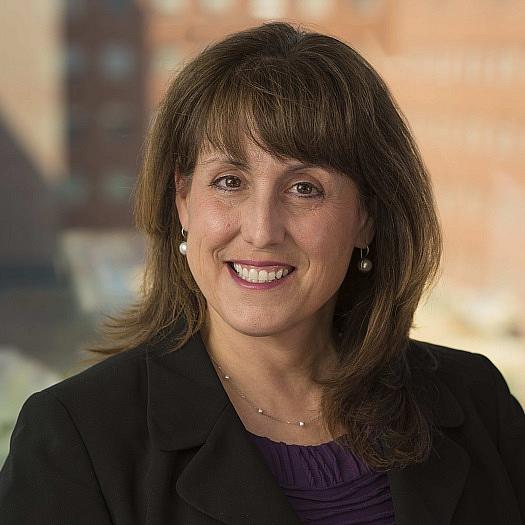Covering Coronavirus: The Mystery Syndrome Afflicting Kids
It’s been called a parent’s worst nightmare. An alarming new inflammatory condition connected to COVID-19 has struck a small but growing number of children across the country. The mysterious condition known as “pediatric multisystem inflammatory syndrome” is marked by widespread inflammation throughout the body, and can trigger potentially life-threatening heart problems. While most children have tested positive for coronavirus or antibodies, doctors are still racing to untangle the links to COVID-19. In this webinar, we’ll hear from a top pediatric infectious disease expert and a Pulitzer-winning health and science reporter about how this mysterious illness impacts children and how reporters can add depth and context to this unnerving story for their audiences and communities as the pandemic continues to unfold.
Webinars are free and made possible by The California Endowment, the Commonwealth Fund and the National Institute for Health Care Management Foundation.
Panelists

Pam Belluck is a health and science writer for The New York Times. In 2015, she was one of seven Times staffers awarded the Pulitzer Prize for coverage of the Ebola epidemic. Belluck was selected to be a Ferris Professor of Journalism at Princeton in 2014 and has taught and spoken about science journalism in various venues, including the Santa Fe Science Writing Workshop, the Simons Foundation, and the American Association for the Advancement of Science. Belluck’s extensive reporting from multiple continents launched The Times’s Vanishing Mind series about Alzheimer’s disease and dementia. Her article about experiments scientists conduct using their own children as subjects was selected for “The Best American Science Writing 2010.” She is also the author of “Island Practice,” a true tale about a colorful and contrarian doctor on Nantucket. In 2014, Ms. Belluck wrote “Mother’s Mind,” a two-part series showing that maternal mental illness is much more common and varied than previously thought. In 2015, in addition to receiving the Pulitzer Prize, her Ebola coverage was recognized for an Overseas Press Club award and an American Association for the Advancement of Science Kavli Science Journalism award.
Belluck joined The Times in 1995 as a general assignment reporter on the metropolitan desk, served as the bureau chief in Queens, and briefly covered education in New York City. In 1997, she became the Midwest bureau chief, based in Chicago. In late 2001, she became the New England bureau chief, in Boston.

Roberta Lynn DeBiasi, M.D., M.S., is chief of the division of pediatric diseases and co-director of the Congenital Zika Program at Children’s National Hospital in Washington, D.C. She holds appointments as a professor of pediatrics and microbiology, immunology and tropical medicine at George Washington University School of Medicine and Health Sciences and serves as principal investigator in the Center for Translational Research at Children’s Research Institute. She received her medical degree at the University of Virginia School of Medicine, and completed her residency in pediatrics at the University of California, Davis Medical Center. She completed her fellowship in Pediatric Infectious Diseases at the University of Colorado/Denver Children’s Hospital, where she served on the faculty years prior to joining Children’s National/GWU in 2005.
Dr. DeBiasi treats normal and immunocompromised children hospitalized with severe infections at Children’s National Medical Center. She leads the Children's National Ebola and Emerging Infections Task Force. Dr. DeBiasi’s research focuses on severe and emerging viral infections affecting pregnant women, neonates, immunocompromised hosts, and normal children. She also directs studies focused on novel antiviral and plasma treatments for severe hospitalized influenza infection. She has authored over 70 original research, review articles, and book chapters. In addition to mentoring medical students, residents, and fellows, she provides continuing medical education for community physicians, and makes regular media appearances in local and national print and broadcast outlets.
Suggested reading & resources
- “‘Straight-Up Fire’ in His Veins: Teen Battles New Covid Syndrome,” by Pam Belluck, The New York Times
- “A Teenager’s Medical Mystery,” The Daily podcast, The New York Times
- “Children Gravely Ill With Covid-19 Often Had Other Medical Conditions,” by Pam Belluck, The New York Times
- “Children Are Falling Ill With a Baffling Ailment Related to Covid-19,” by Pam Belluck, The New York Times
- “Children and Coronavirus: Research Finds Some Become Seriously Ill,” by Pam Belluck, The New York Times
- “U.S. Children With Coronavirus Are Less Hard Hit Than Adults, First Data Shows,” by Pam Belluck, The New York Times
- “A New Coronavirus Threat to Children,” by Pam Belluck, The New York Times
- “New Inflammatory Condition in Children Probably Linked to Coronavirus, Study Finds,” by Pam Belluck, The New York Times
- “After 3 Children Die, a Race to Investigate a Baffling Virus Syndrome,” by Joseph Goldstein and Jesse McKinley, The New York Times
- “What We Know About the Covid-Related Syndrome Affecting Children,” by Melinda Wenner, The New York Times
- “Severe COVID-19 in Children and Young Adults in the Washington, DC Metropolitan Region,” Dr. Roberta DeBiasi et al., Pediatrics, May 2020
- “Cardiac dysfunction and thrombocytopenia-associated multiple organ failure inflammation phenotype in a severe pediatric case of COVID-19,” by Dr. Robert DeBiasi et al. Lancet Child Adolescent Health, May 2020
- “Clinical Characteristics of 58 Children With a Pediatric Inflammatory Multisystem Syndrome Temporally Associated With SARS-CoV-2,” by Elizabeth Whittaker, M.D.; Alasdair Bamford, M.D.; Julia Kenny, M.D., JAMA
- “Multisystem Inflammatory Syndrome Related to COVID-19 in Previously Healthy Children and Adolescents in New York City,” by Eva W. Cheung, M.D.; Philip Zachariah, M.D.; Mark Gorelik, M.D., JAMA
- “COVID and kids: A new inflammatory syndrome poses safety challenge for schools, day care,” by Elizabeth Aguilera, CalMatters
